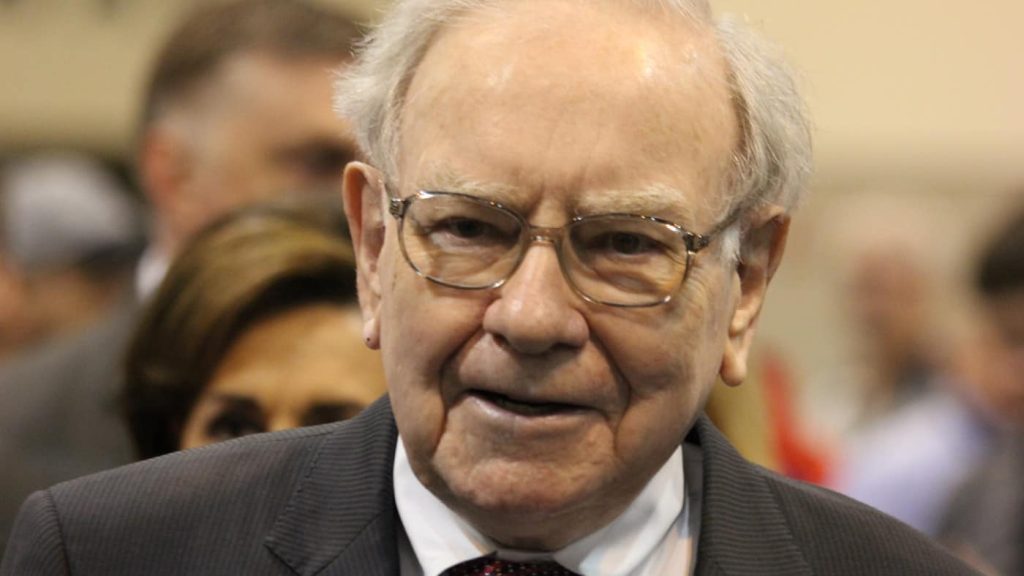To build a passive income flow, I’d follow this Warren Buffett approach


When it comes to passive income, few people have mastered it like Warren Buffett. The legendary investor’s company Berkshire Hathaway generates billions of pounds each year without doing anything for it beyond holding shares in blue-chip businesses such as Apple and Coca-Cola.
Although Buffett has far more resources at his disposal than any small private investor, I still believe the lessons from how he does what he does can be profitably applied even on a much more modest scale.
Sticking to a proven recipe
For example, Buffett is not really an innovator. Nor is he a trader, frequently jumping in and out of shares trying to make a quick profit.
Rather, he does a fairly simple thing – and does it well. He identifies companies he understands and thinks have excellent long-term commercial prospects and are trading at attractive share prices. Then he buys them and often holds them for the long term, hoping that if he has chosen correctly he will be rewarded with dividends, share price growth, or both.
That is a simple, but potentially very powerful, passive income idea.
Putting the theory into practice
When Buffett gets dividends, he does not use them to fund payouts to Berkshire shareholders. Instead, he reinvests them. That simple move can be used by small shareholders, by compounding their dividends.
Imagine I invested £300 each month in income shares and compounded at 7% annually, thanks to reinvesting dividends. After a decade, I would already have a portfolio throwing off £3,600 each year in dividends.
I could keep compounding like Buffett does, or start drawing it as passive income.
One income share to consider
As an example, one share I think dividend-focused investors should consider is insurer Aviva (LSE: AV). The FTSE 100 firm cut its dividend in 2020 but has since been steadily raising it again. Currently, the yield stands very close to my example above, at 7.1%.
In practice, like Buffett, I always keep my portfolio diversified across different shares. That means I may still hit an average target yield even though some shares I own offer more and others less.
The insurance market is huge and I see no reason for that to change. Some insurance is mandatory, while a lot of it is voluntary but customers buy it year after year. That attractive level of demand makes for a highly competitive industry. One risk I see for Aviva is smaller rivals trying to chip into its strong market position by offering more competitive prices, meaning it could lose customers.
Its large customer base is in fact one of the things I like about Aviva. I also think its strong brand and deep experience in what is a complex industry can help it perform competitively.
The post To build a passive income flow, I’d follow this Warren Buffett approach appeared first on The Motley Fool UK.
But there may be an even bigger investment opportunity that’s caught my eye:
Investing in AI: 3 Stocks with Huge Potential!
🤖 Are you fascinated by the potential of AI? 🤖
Imagine investing in cutting-edge technology just once, then watching as it evolves and grows, transforming industries and potentially even yielding substantial returns.
If the idea of being part of the AI revolution excites you, along with the prospect of significant potential gains on your initial investment…
Then you won’t want to miss this special report inside Motley Fool Share Advisor – ‘AI Front Runners: 3 Surprising Stocks Riding The AI Wave’!
And today, we’re giving you exclusive access to ONE of these top AI stock picks, absolutely free!
More reading
- Should I buy Aviva for its 7.8% yield now the share price is at 483p?
- Want a £1,320 passive income in 2025? These 2 UK shares could deliver it!
- Here’s how I’d target £10k passive income a year by investing just £100 a week
- The Aviva share price just jumped 4.5% but still yields 7.02%! Time to buy?
- £10 a day invested in UK shares could one day create a second income of over £3,000 a month!
C Ruane has no position in any of the shares mentioned. The Motley Fool UK has no position in any of the shares mentioned. Views expressed on the companies mentioned in this article are those of the writer and therefore may differ from the official recommendations we make in our subscription services such as Share Advisor, Hidden Winners and Pro. Here at The Motley Fool we believe that considering a diverse range of insights makes us better investors.







